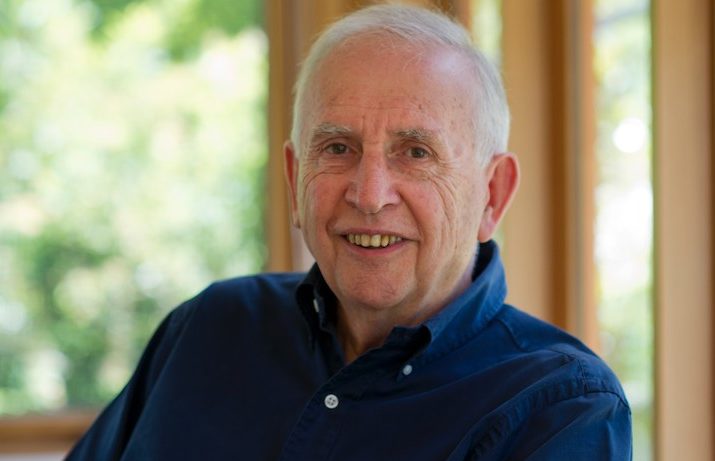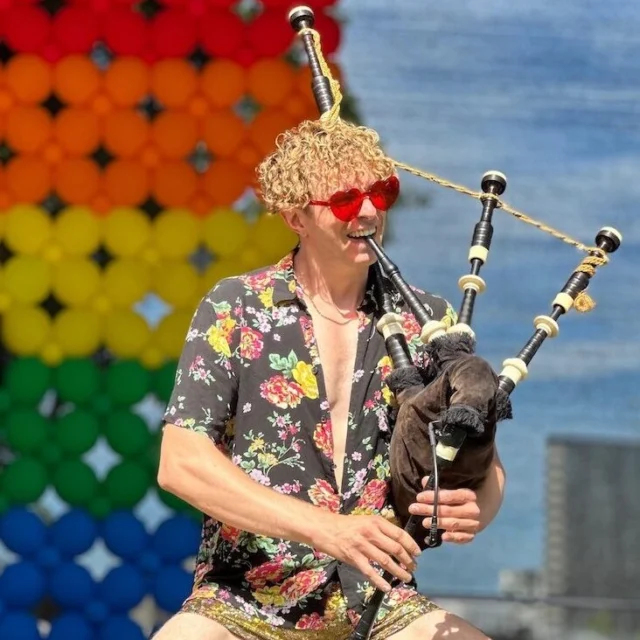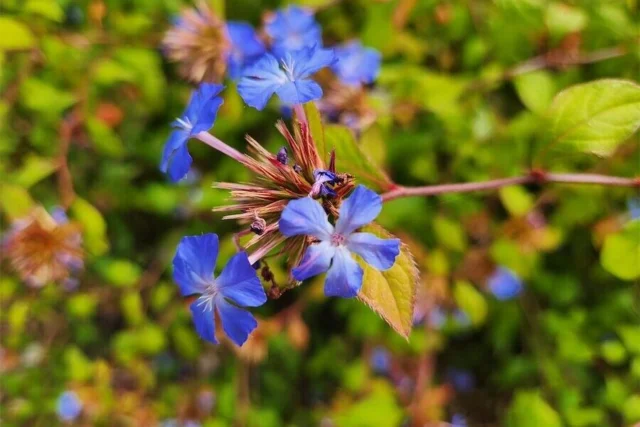
“WHO am I, really?” asks social researcher and psychologist Hugh Mackay, in his latest book “The Inner Self”.
The new book tells readers to look within and ask themselves who they are – a question the bestselling author of 21 books had once thought was boring.
When writing “The Inner Self”, the inner-south resident had to face some deep questions about his own inadequacies such as how two of his marriages came to an end even though he used to and still thinks of himself as a “one-gal” guy.
“Could I have handled those divorces more compassionately? Did I let my work interfere with my family life?” he says.
“A lot of people resist the idea of the inner-self journey. What will I find? What will I do about it, when I do find something?”
In the book Hugh explores the “top 20” hiding places such as addiction, materialism, nostalgia, IT and victimhood.
Hugh suggests that it’s fear of love’s demands that drive people into hiding.
“I was caught up in ‘busyness’. When I was establishing my own business I was totally preoccupied. I neglected other things, I neglected my family,” he says.
Another hiding place is victimhood, and, while Hugh says for a while it’s understandable that people would feel victimised by certain circumstances and it’s important to give them support, but if they get trapped in victimhood it can become a problem.
“If people are only victims, we do tend to switch off and be less sympathetic,” he says.
“But if you start thinking about the needs of other people, you very quickly don’t feel like a victim.
“The best way to find ourselves, is to lose ourselves in the services of others.”
Naturally, Hugh says humans are fascinated by their differences, but if they go deeper, he says people are all the same.
“We’re social species, which means that we belong together,” he says.
“Turns out we have something in common with everyone else [and] at the core is our capacity for love. [It’s the] essence of what it means to be human.
“We humans are social beings whose primary duties to our species, right up there with reproduction, is to create and maintain harmonious, co-operative and social communities. The survival of species depends on it.
“We don’t simply need each other, we need each other to thrive.”
In the first half of people’s lives, Hugh says they’re often preoccupied with establishing their own identity and being different and unique.
When, usually in the second half of life, people look into their inner self, he says they’re usually tugged by something, whether it’s a relationship breakdown, a pandemic, a serious illness or a mid-life crisis.
“My recollection of what was happening between my mid-20s and 40s is all pretty foggy,” he says.
“I knew all these things happened, but I wasn’t fully aware of my true nature until I was well into my 50s.
“Over the last 10 or 15 years I’ve really understood, like never before, what it means to say that I am a human. It’s my human responsibility to be a good neighbour, a good friend. Life should be about the ways we’re connected.
“This pandemic is a really good reminder of that.”
The main premise of the book, according to Hugh, is love. He says it’s the highest ideal for humans and is the richest source of life’s meaning and purpose.
He also explores these ideas in a fictive novel, “Questions of Love”, which was published at the same time as “The Inner Self” late last month, but was written earlier.
Hugh’s publisher suggested publishing them together, saying “Questions of Love” was like a case study to his work on “The Inner Self”.
“It’s a very intimate, forensic examination of a marriage,” says Hugh, who started writing the novel about four years ago but because of its complicated structure, it took him a while to get it right.
“The structure is like taking a jazz improvisation or theme and variations in classical music and adapting that structure to the written word, so the book starts and ends with basically the same chapter,” he says.
Based on a couple, Richard and Freya, Hugh says all the variations and improvisations along the way gradually peel away the layers of their relationship.
“Richard and Freya are both hiding from themselves and each other,” he says.
On the surface, he says they’re a perfect couple, but the novel examines the complexities and contradictions of human love.
“I hope readers will find this a really engrossing read. There’s nothing like peering into someone else’s relationship to clarify what’s going on in yours,” he says.
“The Inner Self” ($29.95) and “Questions of Love” ($32.99) are available at all Canberra bookstores.
Who can be trusted?
In a world of spin and confusion, there’s never been a more important time to support independent journalism in Canberra.
If you trust our work online and want to enforce the power of independent voices, I invite you to make a small contribution.
Every dollar of support is invested back into our journalism to help keep citynews.com.au strong and free.
Thank you,
Ian Meikle, editor




![For graphic designer Tracy Hall, street art is like any artwork, her canvas has been swapped out for fences and plywood, her medium changing from watercolours to spray paint.
A Canberra resident for 13 years, Tracy has been a street and mural artist for the past five.
Her first exploration into grand-scale painting was at the Point Hut toilets in Banks five years ago. “They had just finished doing up the playground area for all the little kids and the words [of graffiti] that were coming up weren’t family friendly,” she says.
“So I ended up drawing this design and I got approval for the artwork.”
Many of Tracy’s time-consuming artworks are free, with thousands of her own dollars put into paint.
@traceofcolourdesigns
To read all about Tracy's fabulous street art, visit our website at citynews.com.au or tap the link in our bio! 🎨🖌
#canberranews #citynews #localstories #canberrastories #Citynews #localnews #canberra #incrediblewomen #journalism #canberracitynews #storiesthatmatter #canberralocals #artist #streetart #streetartist #StreetArtMagic](https://scontent.cdninstagram.com/v/t39.30808-6/490887207_1225841146218103_6160376948971514278_n.jpg?stp=dst-jpg_e35_tt6&_nc_cat=106&ccb=1-7&_nc_sid=18de74&_nc_ohc=yse5ujF1BOUQ7kNvwE8vMJJ&_nc_oc=AdmACWW3pCwuhoAJjTJgeYL0PrOjZetex1flAsV7seJ8OPT1_w_DCdBrY998OXsAdFw&_nc_zt=23&_nc_ht=scontent.cdninstagram.com&edm=ANo9K5cEAAAA&_nc_gid=M3Eat5CavCFLyQKem8wl7A&oh=00_AfEelLohW-0BM38EPlPqLO_ehfn2HbeGBZ7_42rmOJ7w8w&oe=68079794)




Leave a Reply